Russia and Japan recently reached an agreement to build a joint liquefied natural gas plant in Vladivostok, Russia. In an e-mail interview, Michael Bradshaw, professor of human geography at the University of Leicester and vice president for Research and Higher Education at the Royal Geographical Society, discussed Russia-Japan energy cooperation. WPR: What is the status quo of Russia-Japan energy cooperation? Michael Bradshaw: Russia has only recently become a significant supplier of oil and gas to Japan. The Sakhalin-1 and Sakhalin-2 projects have progressively exported oil and liquefied natural gas (LNG) to Japan since 1999, and both have Japanese shareholders. The […]
Russia Archive
Free Newsletter
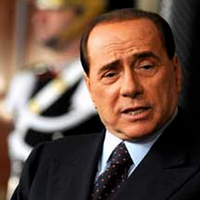
In December, Italy’s bilateral trade agreements with Russia drew media scrutiny. First, a Wikileaks cable release indicated anxiety on the part of various U.S. diplomats over Italian Prime Minister Silvio Berlusconi’s close friendship with Russia’s leaders, particularly Russian President Vladimir Putin. Then Italy’s largest energy company, Eni, renewed its extensive 2006 contract with Russia’s Gazprom, including plans to jointly build the South Stream pipeline across the Black Sea, as well as cooperation in drilling, transportation and personnel training. Critics in Italy and abroad believe the energy partnership between the two nations results as much from Berlusconi’s personal politics as from […]
A civilian nuclear agreement between Russia and the U.S. recently entered into force. Signed in 2008, the 123 Agreement was revived by U.S. President Barack Obama as part of the U.S.-Russia reset. In an e-mail interview, Richard Weitz, senior fellow at the Hudson Institute and a World Politics Review senior editor, discussed the U.S.-Russia 123 Agreement. WPR: What was the impetus for U.S.-Russia 123 Agreement? Richard Weitz: Russian and U.S. officials wanted to improve their bilateral relationship, while their nuclear industries, two of the largest in the world, wanted to expand their commercial collaboration. Presidents George W. Bush and Vladimir […]
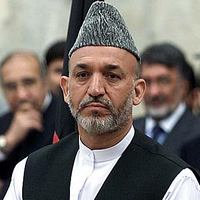
Afghan President Hamid Karzai’s two-day stay in Moscow on Jan. 20-21 marked his first official bilateral visit and the first state visit by an Afghan president to the Russian Federation since its founding after the Soviet Union’s disintegration in December 1991. The trip — during which Karzai met with President Dmitry Medvedev, Prime Minister Vladimir Putin, and other Russian political and economic leaders — provided an important opportunity to both confirm recent growth in formal ties between the two countries as well as impart additional momentum for further expanding the relationship. Karzai was accompanied by most of the Afghan cabinet, […]
This video, reportedly taken by an eyewitness to the deadly terrorist attack at the Domodedovo airport outside Russia on Monday, appeared on YouTube Monday afternoon. Initial reports indicate 35 people were killed in the bombing, with 152 others injured. The video depicts the immediate aftermath of the bombing, showing a smoke-filled area of the airport and the bodies of victims on the floor.
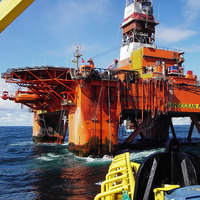
On Jan. 14, two of the world’s oil giants, Russia’s Rosneft and BP, announced an unprecedented “strategic global alliance,” in which they will be exchanging shares and expanding their joint ventures, including launching a new Arctic oil-drilling project. Both companies bring important assets to their new alliance, but the deal has alarmed foreign governments and environmentalist organizations due to its potential commercial, security, and ecological implications. The arrangement also raises interesting questions related to the Russian government’s economic modernization program. Through the deal, Rosneft will acquire 5 percent of BP’s shares, while BP will obtain an additional 9.5 percent share […]
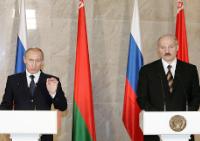
In the ongoing saga of Russian energy diplomacy — intimately tied to Moscow’s attempts to consolidate its influence in its “near abroad” — the Dec. 9 oil-trade agreement with Belarus goes down as an important marker of Russia’s reinvigorated authority in its immediate neighborhood. With President Viktor Yanukovych now exercising increasingly authoritarian control in Ukraine, and Belarus no longer flirting with the West, Moscow can safely assume that the two-decade era of Western institutions and influence expanding eastward has been put on hold indefinitely. This turning point is concurrent with a thawing of relations between Russia and many Western countries, […]
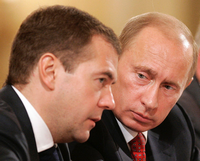
As Russia begins its countdown to elections for the Duma at the end of this year as well as the presidential ballot in early 2012, two predictions are making the rounds. The first is that Prime Minister Vladimir Putin will reclaim the presidency, which the constitution required him to vacate in 2008. (Article 81.3 prohibits anyone from holding the office for more than two consecutive terms.) The second is that the “tandem” formed by Putin and current President Dmitry Medvedev, Putin’s former chief of staff, is not sustainable and that an open break between the two will occur sooner or […]
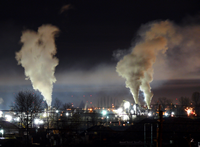
This is Part I in a four-part series. Part I examines the follow-up agreement to the Kyoto Protocol. Part II will examine the REDD+ agreement. Part III will examine financial assistance. And Part IV will examine technology transfers and adaptation. CANCÚN, Mexico — Observers and participants at December’s climate change summit in Cancún, Mexico, routinely identified a follow-up agreement to the Kyoto Protocol as one area where progress was essential. The odds of reaching one were not promising. With just one year left on the Kyoto treaty, and Japan firm in its stance that it will not permit an extension […]
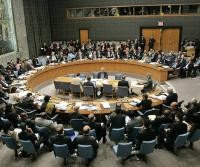
One global issue that looks to become more prominent in 2011 is that of United Nations Security Council (UNSC) reform. Several world leaders — including Presidents Barack Obama, Dmitry Medvedev, and Nicolas Sarkozy — have recently called for adding new members to the council, while others want to overhaul its structure and procedures. But the reformers must overcome a potential obstacle: The council just may be incorrigible by design. Most U.N. reform debates focus on how to change the Security Council to make it more representative and democratic. With respect to the former issue, the primary concern has been that, […]
